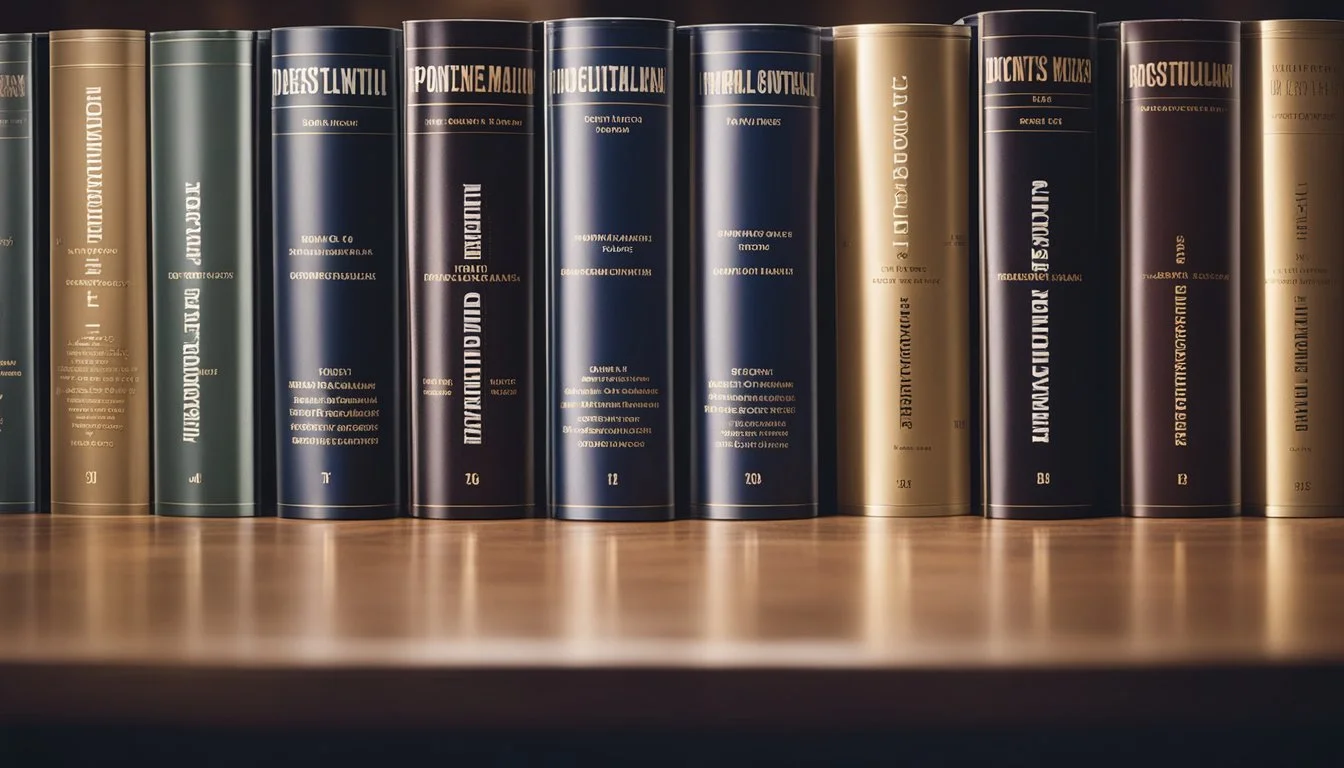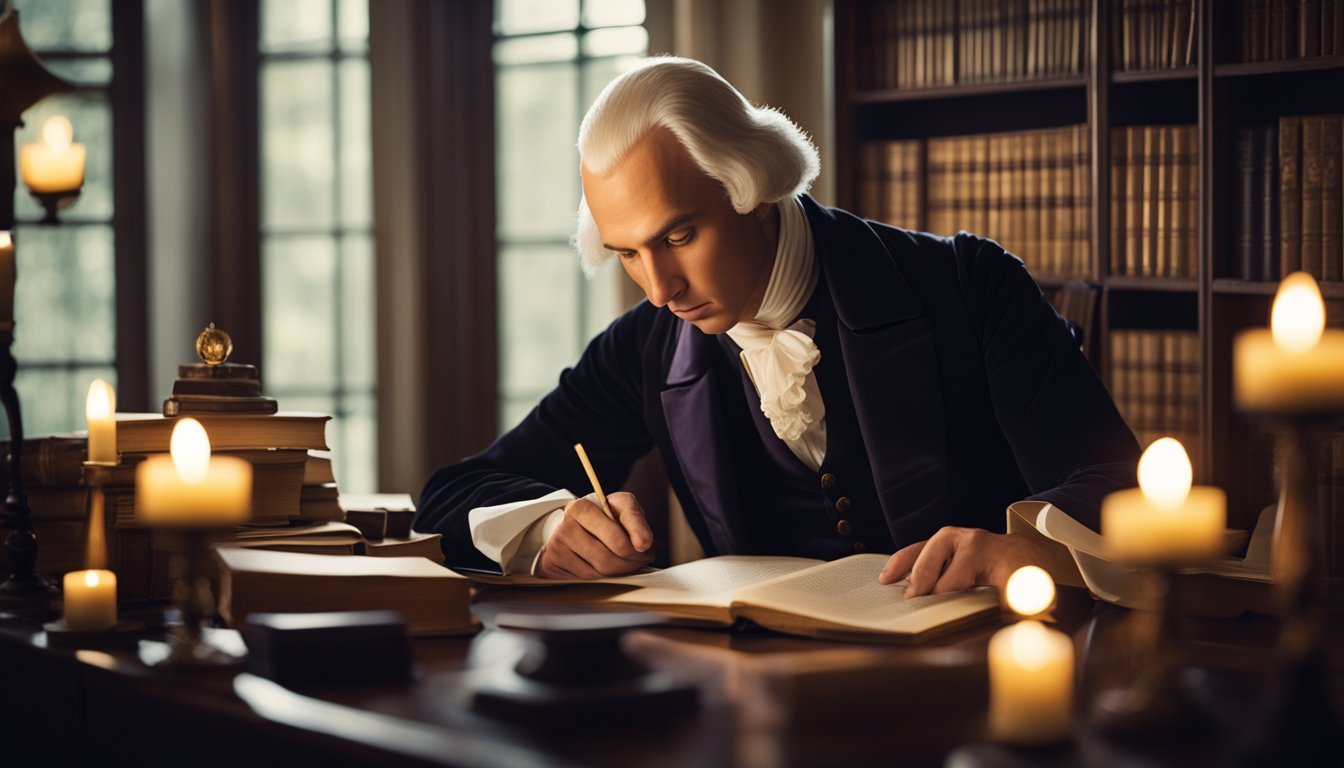4 Insightful Documentaries on James Madison's Constitutional Genius
Exploring the Architect of American Democracy
James Madison, the fourth president of the United States, played a pivotal role in shaping the nation's government. As a key figure at the Constitutional Convention of 1787, Madison's intellect and vision were instrumental in crafting the framework that would become the U.S. Constitution.
Several documentaries have been produced to explore Madison's life, ideas, and contributions to American democracy. These films offer valuable insights into Madison's constitutional genius and his lasting impact on the United States' political system. By examining Madison's work through the lens of documentaries, viewers can gain a deeper understanding of this Founding Father's enduring legacy.
1) "A More Perfect Union" by PBS
"A More Perfect Union" is an enlightening documentary episode from PBS's "Constitution USA with Peter Sagal" series (2013). The program explores the origins and significance of the United States Constitution.
Host Peter Sagal embarks on a cross-country journey, visiting key historical sites and interviewing constitutional experts. He examines how the Constitution functions in modern America and its impact on daily life.
The documentary highlights James Madison's crucial role in crafting the Constitution. It delves into the challenges faced by the Founding Fathers in creating a unified government from disparate states.
Viewers learn about the compromises made during the Constitutional Convention, including the contentious issue of slavery. The program also discusses the Bill of Rights and its importance in protecting individual liberties.
"A More Perfect Union" offers insights into the enduring relevance of the Constitution. It demonstrates how this living document continues to shape American democracy and legal system.
More information on "Constitution USA with Peter Sagal"
2) "American Experience: Dolley Madison" by PBS (2010)
"American Experience: Dolley Madison" offers a compelling portrait of the influential First Lady. The documentary explores Dolley Madison's role in shaping early American politics and society.
Dolley Madison used her position as wife of the fourth president to help establish social and political norms in Washington D.C. The film highlights her efforts to bring opposing factions together through her famous White House gatherings.
Her bravery during the War of 1812 is a focal point. The documentary recounts how she saved important documents and a portrait of George Washington before British troops burned the White House in 1814.
The film features historical reenactments and expert commentary to bring Dolley Madison's story to life. It examines her background, marriage to James Madison, and lasting impact on the role of First Lady.
"American Experience: Dolley Madison" provides valuable context on the social and political climate of the early American republic. It illuminates Dolley Madison's significant contributions during a formative period in U.S. history.
3) "Liberty! The American Revolution" by PBS (1997)
"Liberty! The American Revolution" is a comprehensive six-part documentary series produced by PBS. It chronicles the events and ideas that led to the American Revolution and the formation of the United States.
The series features a blend of dramatic reenactments, expert commentary, and historical analysis. It covers key figures like George Washington, Benjamin Franklin, and Thomas Jefferson, as well as lesser-known contributors to the revolutionary cause.
Each episode explores different aspects of the revolution, from the early tensions with Britain to the drafting of the Constitution. The documentary pays particular attention to the philosophical underpinnings of the revolution and the evolving concept of liberty.
While James Madison is not the sole focus, his contributions to the Constitutional Convention and the Bill of Rights are highlighted. The series provides context for Madison's role in shaping the new government and his intellectual approach to balancing power and individual rights.
"Liberty!" offers viewers a nuanced understanding of the complexities and contradictions inherent in the American Revolution. It serves as a valuable resource for those seeking to understand the origins of the United States and its founding principles.
More information on PBS's "Liberty! The American Revolution"
4) "James Madison: Father of the Constitution" by History Channel (2005)
This History Channel documentary examines James Madison's pivotal role in shaping the United States Constitution. It explores Madison's early arrival at the Constitutional Convention and his influential Virginia Plan.
The film highlights Madison's strategic discussions with fellow Virginia delegates, which laid the groundwork for the convention's proceedings. It delves into his vision for a system of checks and balances, a cornerstone of American government.
Madison's contributions to The Federalist Papers are also featured. The documentary showcases how these essays, co-authored with Alexander Hamilton and John Jay, helped persuade New York citizens to ratify the Constitution.
The program addresses Madison's political philosophy and his status as one of the era's most important thinkers. It provides insight into his ideas on government structure and individual rights that continue to shape American democracy today.
More information on the documentary
James Madison's Early Life and Education
James Madison's formative years profoundly shaped his intellectual development and political philosophy. His upbringing in colonial Virginia and rigorous academic pursuits laid the foundation for his future role as a constitutional architect.
Influence of His Upbringing
Born in 1751 to a wealthy Virginia planter family, James Madison grew up on a tobacco plantation called Montpelier. His father, James Madison Sr., was a prominent landowner and county leader. Young Madison's early education began at home under the tutelage of his mother and grandmother.
The family's social status afforded Madison access to an extensive library, sparking his lifelong passion for learning. His childhood experiences on the plantation exposed him to the complexities of colonial society, including the harsh realities of slavery.
Madison's health was often fragile, which led to periods of intense study and reflection. This introspective nature contributed to his analytical mindset and intellectual curiosity.
Academic Pursuits and Political Inclinations
Madison's formal education began at a boarding school run by Donald Robertson. Here, he excelled in classical languages and mathematics. At age 16, he enrolled at the College of New Jersey (now Princeton University).
Under the guidance of President John Witherspoon, Madison immersed himself in studies of law, philosophy, and rhetoric. He completed his bachelor's degree in just two years, demonstrating his exceptional intellectual capacity.
Madison's academic focus shifted towards political theory and history. He delved into works by Enlightenment thinkers, shaping his views on government and individual rights. This period solidified his belief in religious freedom and separation of church and state.
After graduation, Madison continued his studies independently, analyzing different forms of government. This self-directed education laid the groundwork for his future contributions to American political thought.
Role in the Constitutional Convention
James Madison played a pivotal role in shaping the U.S. Constitution during the 1787 Convention in Philadelphia. He arrived with a comprehensive plan and actively participated in debates, earning the title "Father of the Constitution."
Madison's Virginia Plan
Madison drafted the Virginia Plan, which became the foundation for the new government structure. This plan proposed a strong national government with three branches: legislative, executive, and judicial.
The Virginia Plan advocated for a bicameral legislature with representation based on population. It also called for a national executive and judiciary chosen by the legislature.
Madison's proposal favored larger states and aimed to address the weaknesses of the Articles of Confederation. The plan sparked intense debate among delegates from different states.
Debates and Compromise Strategies
Throughout the Convention, Madison actively participated in debates and worked to find compromises. He kept detailed notes of the proceedings, providing valuable historical insight into the discussions.
Madison supported proportional representation in both houses of Congress, but ultimately accepted the Connecticut Compromise. This agreement established equal state representation in the Senate and proportional representation in the House.
He advocated for a strong federal government while balancing state interests. Madison worked closely with other delegates to refine proposals and build consensus on contentious issues.
His diplomatic skills and willingness to compromise helped bridge divides between large and small states, as well as northern and southern interests.
The Federalist Papers and Advocacy
The Federalist Papers played a crucial role in advocating for the ratification of the U.S. Constitution. This collaborative effort showcased James Madison's intellectual prowess and persuasive skills.
Madison's Contributions to The Federalist Papers
James Madison authored 29 of the 85 Federalist Papers, second only to Alexander Hamilton. His essays focused on the structure and function of the proposed government. Madison's most famous contribution, Federalist No. 10, addressed the dangers of factions and the benefits of a large republic.
In Federalist No. 51, Madison explained the system of checks and balances. He argued for the separation of powers to prevent any one branch from becoming too powerful. Madison's writings demonstrated his deep understanding of political theory and human nature.
Persuasion Techniques and Impact
The Federalist Papers employed various persuasive techniques to win support for the Constitution. Madison and his co-authors used logical arguments, historical examples, and appeals to common values.
They addressed specific concerns raised by Anti-Federalists, providing detailed explanations of constitutional provisions. The essays were published in New York newspapers, reaching a wide audience of citizens and delegates.
The Federalist Papers significantly influenced the ratification debates. They helped sway public opinion and provided intellectual ammunition for Constitution supporters. Their impact extended beyond ratification, becoming an essential resource for interpreting the Constitution's meaning and intent.




